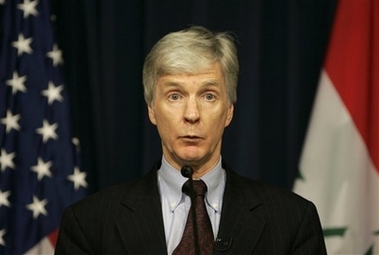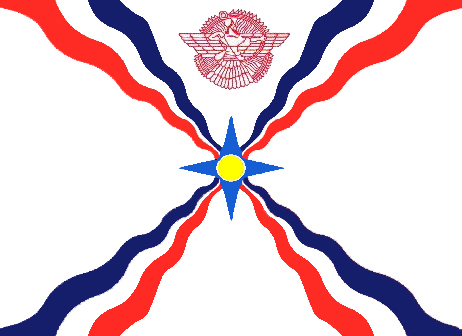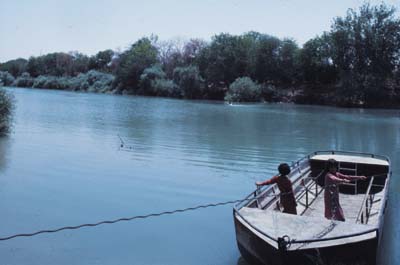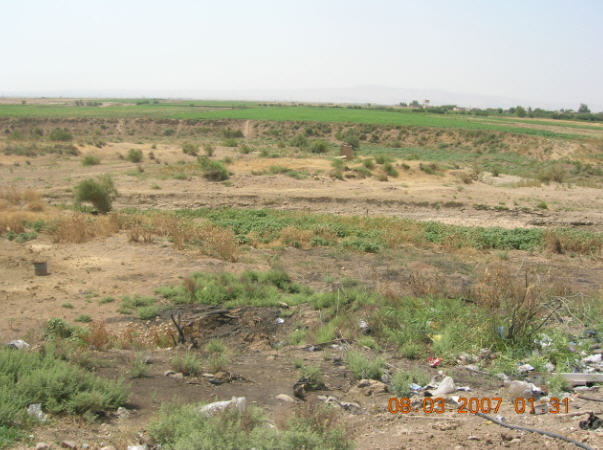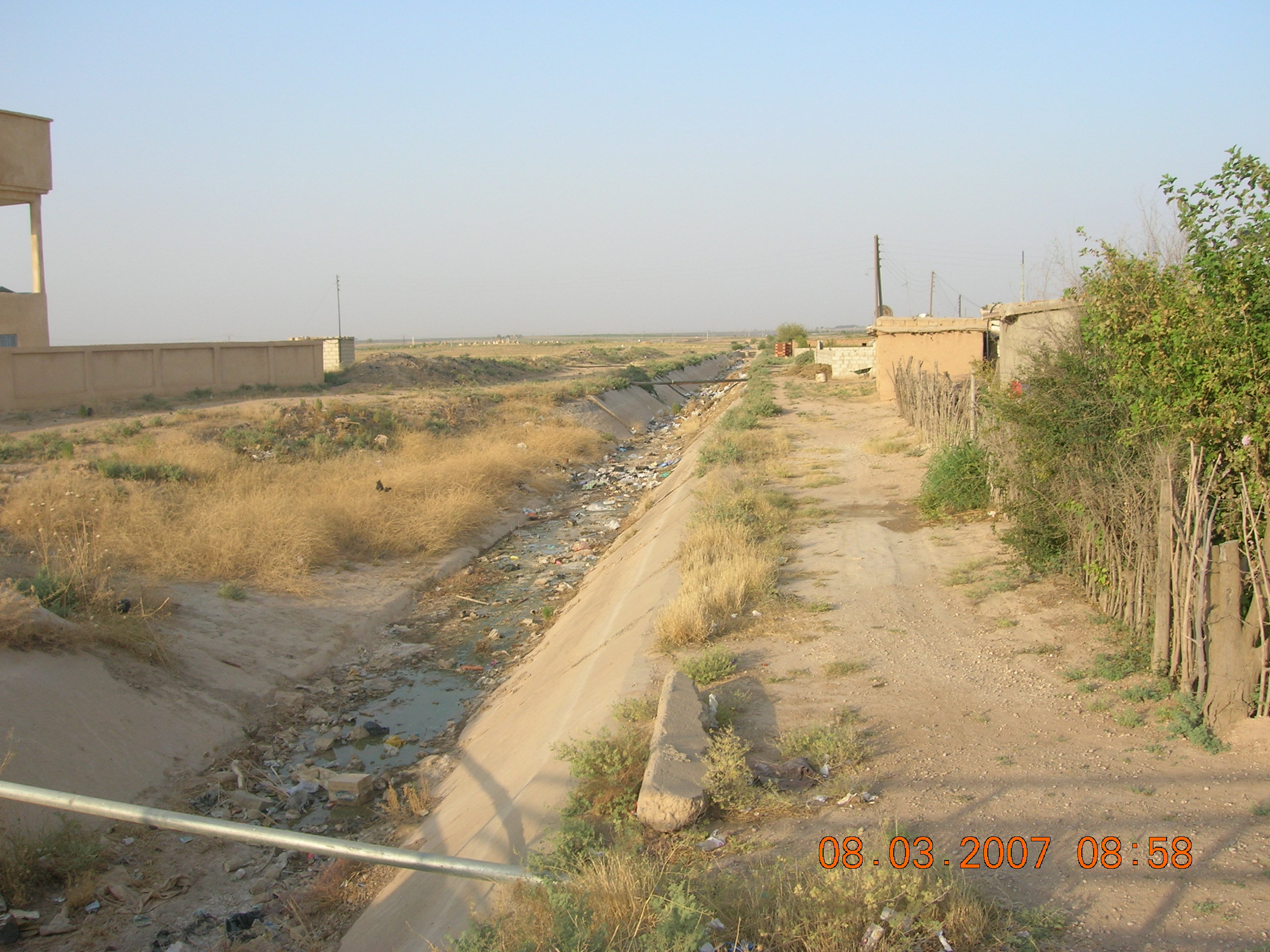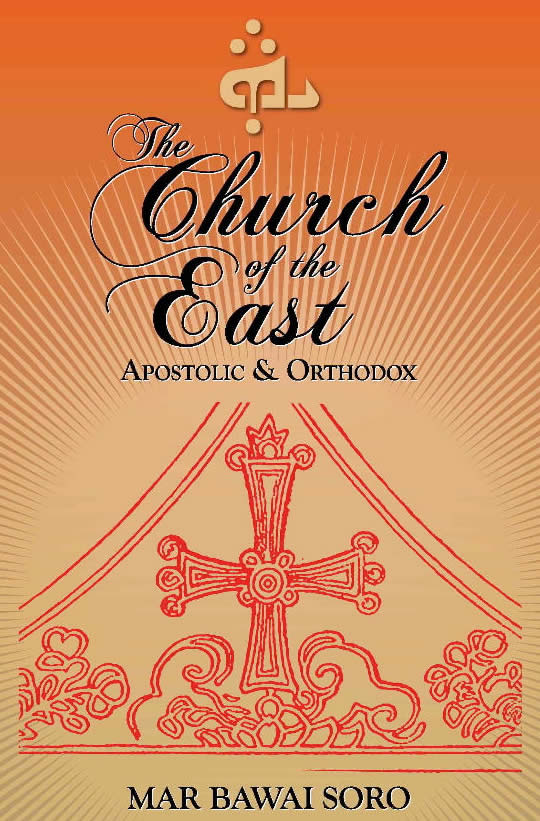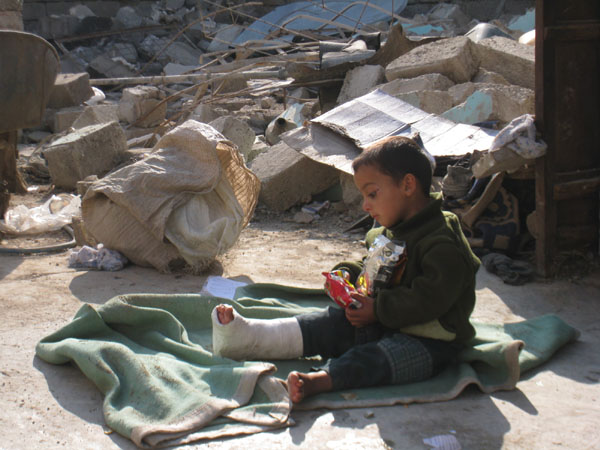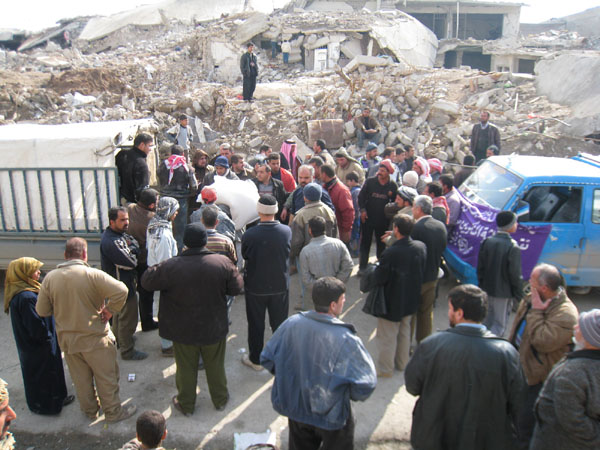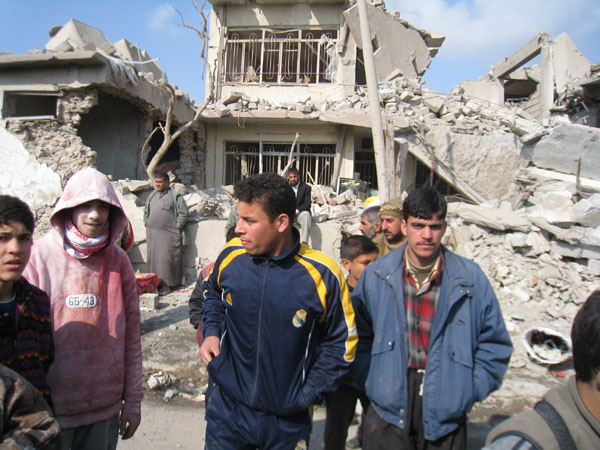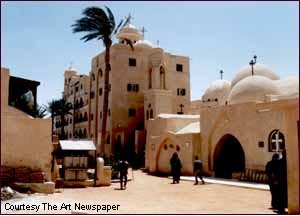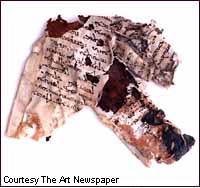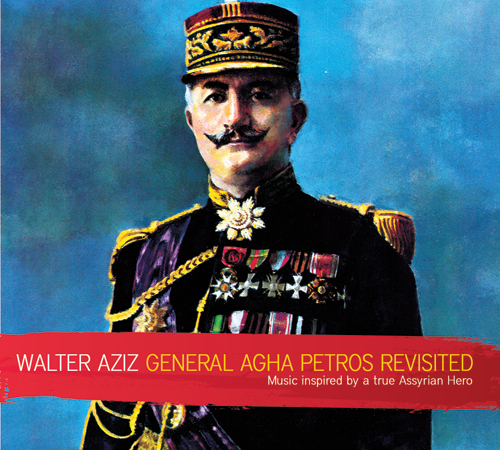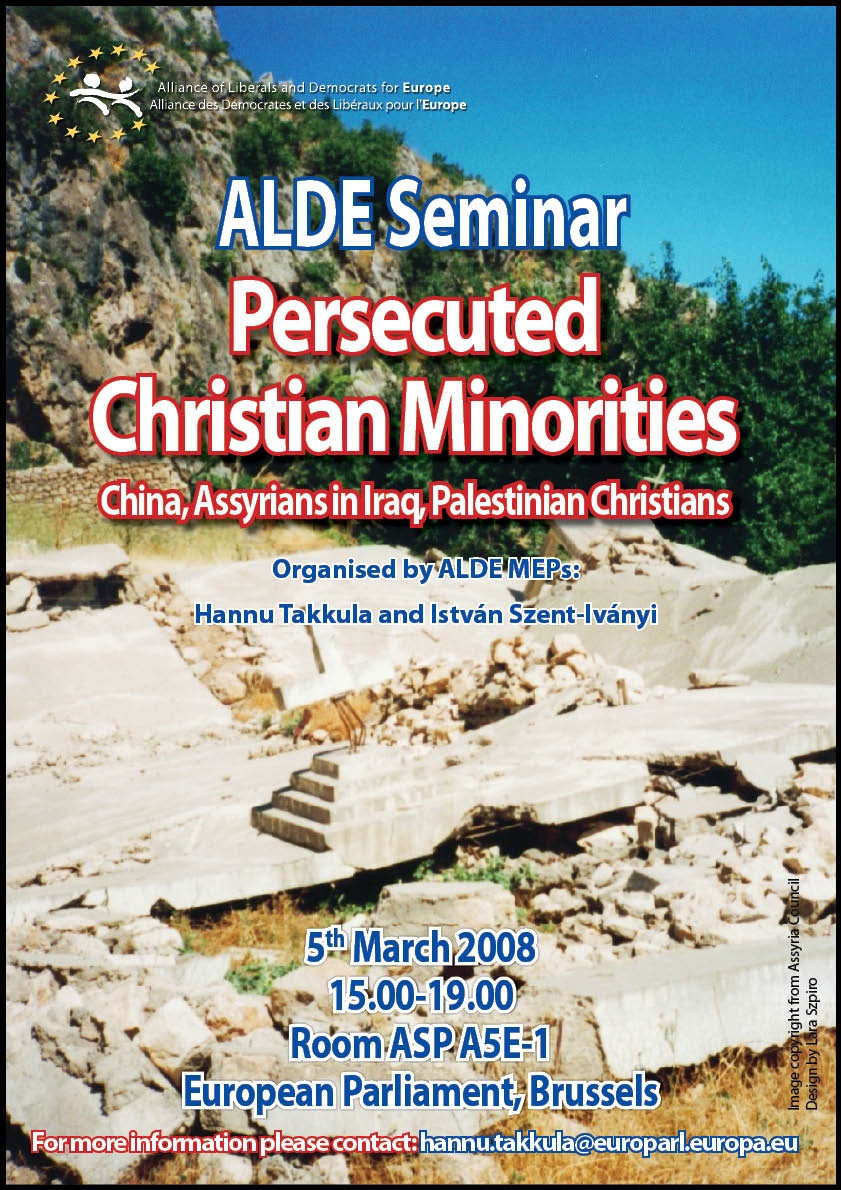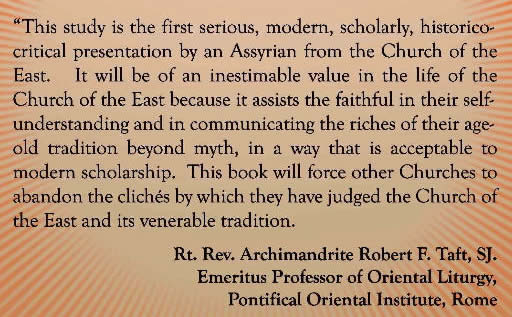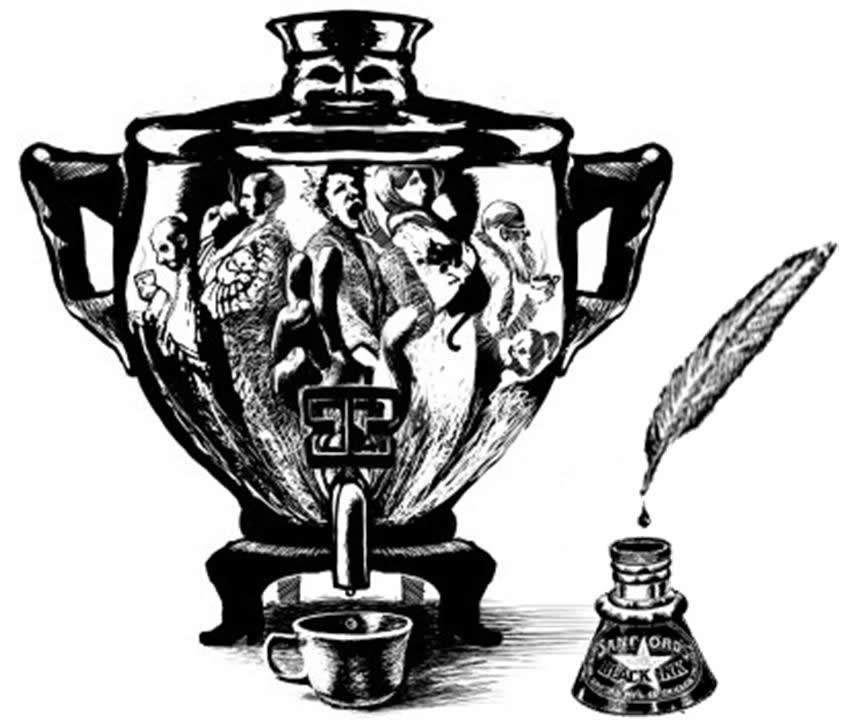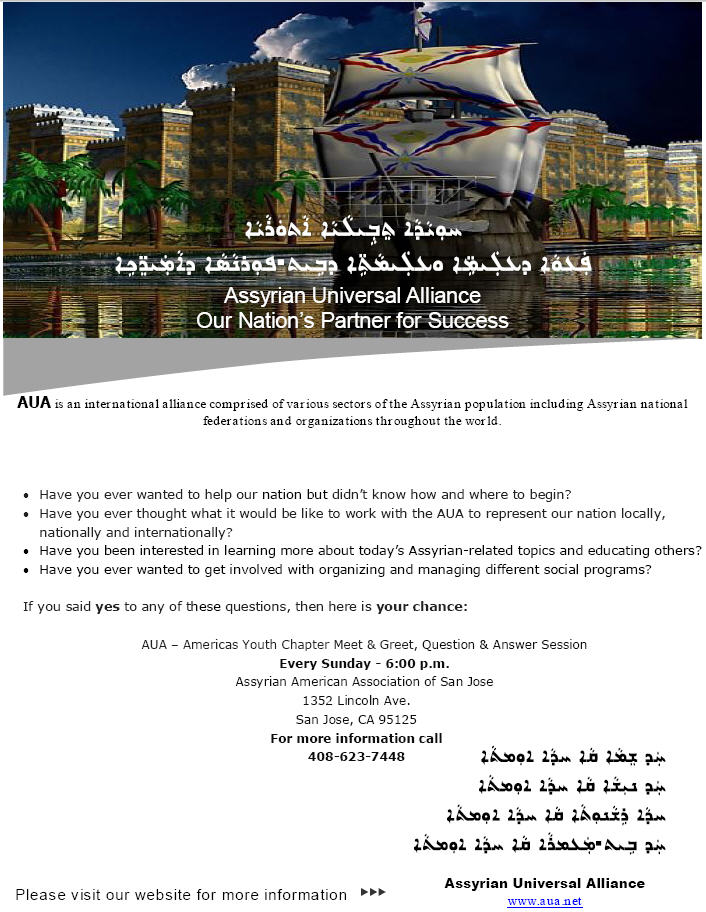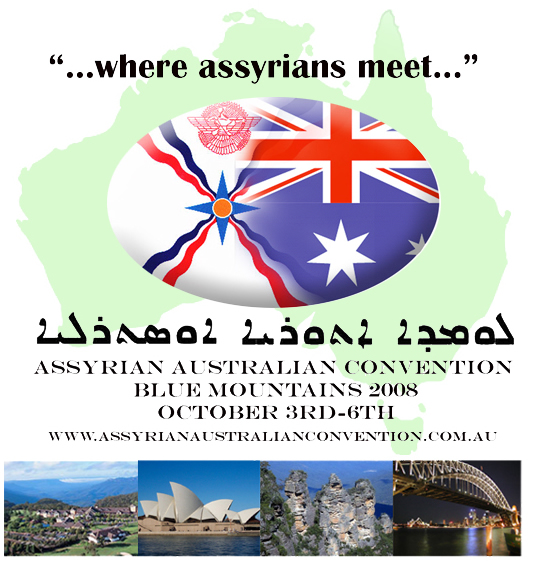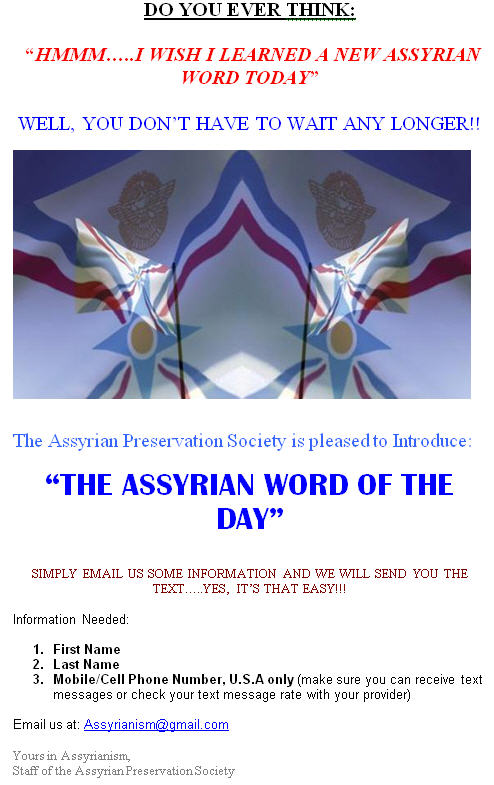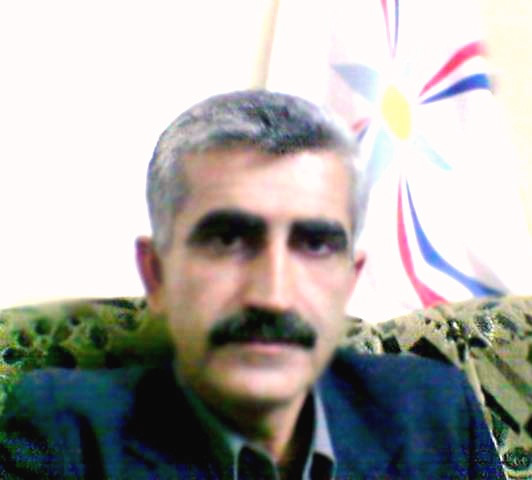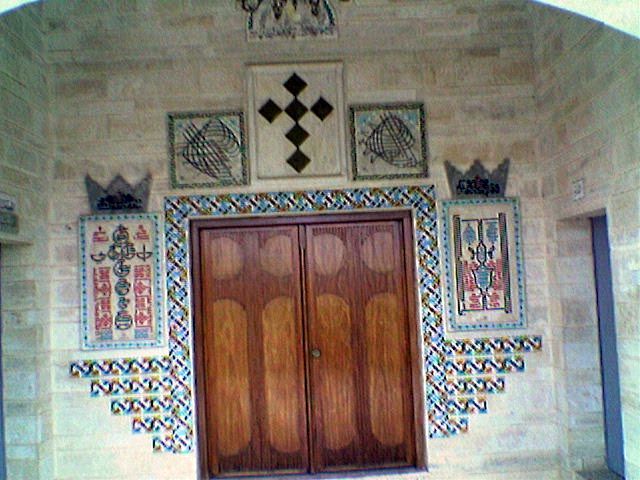Saint Valentine’s Day
&
the Assyrian Origins of Romeo and Juliet
Stan Shabaz
Washington, DC
Saint Valentine’s Day is celebrated each year on February 14. It commemorates an early martyr of the Christian Church named Valentine. He is the patron Saint of lovers and over the centuries the day of Saint Valentine’s memorial also became a day celebrated by lovers the world over.
But did you know that one of the most famous love stories in world history owes it origins to our ancestors? The story of “Romeo and Juliet” has captivated the imagination of the world since the day it was first performed. Many adaptations and variations of “Romeo and Juliet” have appeared throughout the centuries since Shakespeare’s day. Yet this story did not arise out of nothingness. It is in fact a retelling of a tale which the Roman poet Ovid put down to paper in his “Metamorphoses”. In book IV of that work he tells the story of Pyramus and Thisbe, an early incarnation of the Romeo and Juliet story. But, in that book, Ovid is in fact retelling the tragic tale of two ancient Assyrian lovers.
Pyramus and Thisbe, the two lovers were forced apart because their families were feuding. Ultimately the selfishness and short-sidedness of their families led them to a tragic fate. In honour of St. Valentines Day, I will quote Thomas Bulfinch’s summary of the story here:
Pyramus was the handsomest youth, and Thisbe the fairest maiden, in all Babylonia, where Semiramis reigned. Their parents occupied adjoining houses; and neighborhood brought the young people together, and acquaintance ripened into love. They would gladly have married, but their parents forbade. One thing, however, they could not forbid—that love should glow with equal ardor in the bosoms of both. They conversed by signs and glances, and the fire burned more intensely for being covered up. In the wall that parted the two houses there was a crack, caused by some fault in the structure. No one had remarked it before, but the lovers discovered it. What will not love discover! It afforded a passage to the voice; and tender messages used to pass backward and forward through the gap. As they stood, Pyramus on this side, Thisbe on that, their breaths would mingle. “Cruel wall,” they said, “why do you keep two lovers apart? But we will not be ungrateful. We owe you, we confess, the privilege of transmitting loving words to willing ears.” Such words they uttered on different sides of the wall; and when night came and they must say farewell, they pressed their lips upon the wall, she on her side, he on his, as they could come no nearer.
Next morning, when Aurora had put out the stars, and the sun had melted the frost from the grass, they met at the accustomed spot. Then, after lamenting their hard fate, they agreed that next night, when all was still, they would slip away from watchful eyes, leave their dwellings and walk out into the fields; and to insure a meeting, repair to a well-known edifice standing without the city’s bounds, called the Tomb of Ninus, and that the one who came first should await the other at the foot of a certain tree. It was a white mulberry tree, and stood near a cool spring. All was agreed on, and they waited impatiently for the sun to go down beneath the waters and night to rise up from them. Then cautiously Thisbe stole forth, unobserved by the family, her head covered with a veil, made her way to the monument and sat down under the tree. As she sat alone in the dim light of the evening she descried a lioness, her jaws reeking with recent slaughter, approaching the fountain to slake her thirst. Thisbe fled at the sight, and sought refuge in the hollow of a rock. As she fled she dropped her veil. The lioness after drinking at the spring turned to retreat to the woods, and seeing the veil on the ground, tossed and rent it with her bloody mouth.
Pyramus, having been delayed, now approached the place of meeting. He saw in the sand the footsteps of the lion, and the color fled from his cheeks at the sight. Presently he found the veil all rent and bloody. “O hapless girl,” said he, “I have been the cause of thy death! Thou, more worthy of life than I, hast fallen the first victim. I will follow. I am the guilty cause, in tempting thee forth to a place of such peril, and not being myself on the spot to guard thee. Come forth, ye lions, from the rocks, and tear this guilty body with your teeth.” He took up the veil, carried it with him to the appointed tree, and covered it with kisses and with tears. “My blood also shall stain your texture,” said he, and drawing his sword plunged it into his heart. The blood spurted from the wound, and tinged the white mulberries of the tree all red; and sinking into the earth reached the roots, so that the red color mounted through the trunk to the fruit.
By this time Thisbe, still trembling with fear, yet wishing not to disappoint her lover, stepped cautiously forth, looking anxiously for the youth, eager to tell him the danger she had escaped. When she came to the spot and saw the changed color of the mulberries she doubted whether it was the same place. While she hesitated she saw the form of one struggling in the agonies of death. She started back, a shudder ran through her frame as a ripple on the face of the still water when a sudden breeze sweeps over it. But as soon as she recognized her lover, she screamed and beat her breast, embracing the lifeless body, pouring tears into its wounds, and imprinting kisses on the cold lips. “O Pyramus,” she cried, “what has done this? Answer me, Pyramus; it is your own Thisbe that speaks. Hear me, dearest, and lift that drooping head!” At the name of Thisbe Pyramus opened his eyes, then closed them again. She saw her veil stained with blood and the scabbard empty of its sword. “Thy own hand has slain thee, and for my sake,” she said. “I too can be brave for once, and my love is as strong as thine. I will follow thee in death, for I have been the cause; and death which alone could part us shall not prevent my joining thee. And ye, unhappy parents of us both, deny us, let one tomb contain us. And thou, tree, retain the marks of slaughter. Let thy berries still serve for memorials of our blood.” So saying she plunged the sword into her breast. Her parents ratified her wish, the gods also ratified it. The two bodies were buried in one sepulchre, and the tree ever after brought forth purple berries, as it does to this day. [1]
That Shakespeare was aware of this tale is a certainty, for he includes a parodist performance of it in his play “A Midsummer Night’s Dream”. Here is an extract from Shakespeare’s retelling of it:
This man is Pyramus, if you would know;
This beauteous lady Thisby is certain.
This man, with lime and rough-cast, doth present
Wall, that vile Wall which did these lovers sunder;
And through Wall's chink, poor souls, they are content
To whisper. At the which let no man wonder.
This man, with lanthorn, dog, and bush of thorn,
Presenteth Moonshine; for, if you will know,
By moonshine did these lovers think no scorn
To meet at Ninus' tomb, there, there to woo.
This grisly beast, which Lion hight by name,
The trusty Thisby, coming first by night,
Did scare away, or rather did affright;
And, as she fled, her mantle she did fall,
Which Lion vile with bloody mouth did stain.
Anon comes Pyramus, sweet youth and tall,
And finds his trusty Thisby's mantle slain:
Whereat, with blade, with bloody blameful blade,
He bravely broach'd is boiling bloody breast;
And Thisby, tarrying in mulberry shade,
His dagger drew, and died. For all the rest,
Let Lion, Moonshine, Wall, and lovers twain
At large discourse, while here they do remain. [2]
And in “Romeo and Juliet”, Shakespeare reworks the story but keeps the essence of the original. “Romeo and Juliet” would become one of Shakespeare’s most popular plays and would give the original tale a renewed life. Thus the tragic tale of these two Assyrian lovers, torn apart by fate and family has survived the millennia through the works of Ovid and Shakespeare.
Since then, the story resurfaces again and again in many different formats and adaptations. In paintings (Nicolas Poussin’s “Landscape with Pyramus and Thisbe” [1651] and John William Waterhouse’s “Thisbe” [1909]); ballets (Sergei Prokofiev’s “Romeo and Juliet”); in music (Hector Berlioz’s “Roméo et Juliette” [1839] and Pyotir Tchaikovsky’s “Romeo and Juliet Overture-Fantasy” [1869]); and on stage and screen as in:
- Franco Zeffirelli’s 1968, Oscar winning film, “Romeo and Juliet”
- Baz Luhrmann’s 1996 film, “Romeo + Juliet”
- Robert Wise’s and Jerome Robbins’ 1961 Oscar winning film, “West Side Story”
- The 1957 Broadway musical, “West Side Story”
Of course the list goes on and on: silent films, radio shows, animated films, television presentations, etc. Yet, despite the multitude and variety of adaptations appearing over the centuries in literature and on stage, screen, radio and television, the core story of two lovers forced into a tragic fate because of their families’ stubbornness still harkens back to the ancient Mesopotamian prototype tale of Pyramus and Thisbe. Thus, what started as a quarrel between two ancient Assyrian families has ended up bequeathing an enormous heritage to the canons of western literature, art and popular culture.
Lovers Reincarnated: The Pyramus River, Cilicia and Adana
An ancient myth evolved around the lovers whereby it is said that the gods took mercy on them and reincarnated them as a river and a tributary spring so that they might be joined together in nature for all time. The river containing their immortal souls was therefore called the “Pyramus River”, now also known as the Ceyhan River. It is located in Cilicia and still flows there to this day.
The region of Cilicia is on the northeastern corner of the Mediterranean Sea, just north of Cyprus and south of the Taurus Mountains. Cilicia was named after the Phoenician prince Cilix. [3] Throughout history Cilicia was always closely connected geographically, politically, economically and culturally with Syria and northern Mesopotamia. [4] In ancient times it had a strong Phoenician influence in terms of trade and settlements and would become a province of the Assyrian Empire.
In modern times, Cilicia had a large Assyrian and Armenian population which were subjected to an infamous massacre in 1909. In his important book, “Massacres, Resistance, Protectors”, Professor David Gaunt states that a “geographically limited, but nevertheless very bloody, massacre occurred in the vicinity of Adana, provincial capital of Cilicia. This took place during the two-week-long attempt in 1909 by Sultan Abdul Hamid to regain power and revoke the new constitutional rule….This massacre is important because, possibly for the first time, no distinction was made between Armenians and other Oriental Christians.” He continues that “up to 20,000 Christian deaths should be counted for the entire province, and among the victims were 850 Syriacs and 422 Chaldeans.” [5]
Threads of History
O, the ironies and intricacies of history! On the day of the martyred Saint Valentine we honour love: and the greatest love story of all time has its origins in the tragic tale of two martyred Assyrian lovers who first found love near the rivers Tigris and Euphrates; lovers who embraced each other in death near the tomb of King Ninus; lovers who were believed to be reincarnated into the mighty Pyramus River: a river which flows through the tragic Cilician province of Adana where thousands of Assyrians and Armenians were massacred in 1909. Martyred solely because of their Christian faith, just as the original Saint Valentine was.
Thus all these various narratives and histories start to merge together: themes of life and death; faith and love; religion and myth; history and geography have become inextricably woven together throughout the millennia creating an amazing historical tapestry. It is this magnificent and powerful cultural-historical legacy which has truly served as a fountainhead of world culture and civilization.
 |
- Bulfinch, Thomas. “Age of Fable: Vol. I: Stories of Gods and Heroes”, 1913.
- William Shakespeare, “A Midsummer’s Nights Dream”, Act V, Scene I.
- Cilix was the son of the Phoenician King Agenor of Tyre. Cilix was the brother of Cadmus and Europa. Cadmus founded the city of Cadmea, later called Thebes. He was credited with bringing the alphabet to the Greeks. Europa was abducted by Zeus and her brothers were sent off in search of her. The continent of Europe was named after Europa.
- “The most ancient inhabitants of Cilicia seem to have belonged to the Semitic or Syrian race. And the river Pyramus is said to have been called at one time Leucosyrus.” in “Manual of Ancient Geography” by Dr. Leonhard Schmitz, 1857, Pg. 296
- Gaunt, David, “Massacres, Resistance, Protectors: Muslim-Christian Relations in Eastern Anatolia During World War I”, 2006, pg. 44-45.
The Status of the Assyrian Nation in 2008
Dr George Habash
United Kingdom
Introduction
Anyone who calls himself Assyrian must adhere to Assyrianism, believe in the unity of Assyrians worldwide and endeavour by all possible means to re-create or re-establish the Assyrian homeland in our historical heartlands. The term, re-create or re-establish does not mean invention of a homeland from nowhere but the re-birth of a nation that has been forcibly denied existence.
This nation ought to have been re-established directly after the armistice of 1918 along with other new states but ended up divided along the current southern Turkish borders, cutting it into four states, where above the border Assyrians, were wiped out and below denied autonomous status or even national rights.
Spring 2003 brought “winds of change” but that change has resulted in political morass and mob culture and the spirit of freedom, freedom of individual and liberty of community, was short-lived.
To respond to that liberty Assyrians surfaced alternative options to alter the administrational grip of the centre in order to enabling them to practise their Assyrian way of life that is compatible with their faith and culture but so far all seems as a pipe-dream squandered by Assyrianless Assyrians and Chaldean supremacists.
The Chaldean Supremacists
Between 12 and 13 March 2007, an estimated 800-1600 purposely-handpicked delegates (according to which source you believe) attended the meeting in the Assyrian town of Ankawa, sponsored by the Kurdish fiscal minister Sarguis Aghajan. These people came from nowhere and invented an ideology that the Chaldeans and Syriac and Assyrians are one [with mutated DNA] led by Chaldeans. In other words their purpose was to legitimise the words Chaldean and Syriac as groups regardless of reason and historical facts for the definition of our nationality.
The gatherers under the patronage of Sarguis Aghajan adopted the triple name and also pioneered the principle of autonomous rule that will be attached to the existing Kurdish fiefdom centred in Arbil.
The gatherers invented a theory, as they say, that after 1918 our people were divided among four states (each having a quarter of us) and now Yonadam Kanna want to divide this quarter by 2 (here we will become one-eighth). They argue that keeping the current quarter together is wiser and this be done via Aghajan’s plan through Ankawa meeting.
They mean incorporating the Nineveh plain into Dohuk province and by this we will be united, as they say, in one geographic area ruled by the turbaned Kurds. This expanded province will be led by Aghajan as its governor as secrets are revealed.
This plan is deadly and leaves me incandescent with rage; it means handing over the Assyrian heartland on a golden plate to the Kurds who will later mistreat us as their brother Arabs did.
The Chaldean Syriac Assyrian Tripledom of Ankawa is another front for fictitious Chaldeanism by Chaldean supremacists in disguise. Their philosophy is Chaldean first, Syriac second and Assyrian bottom third. By this they believe they can deliver a mortal blow to the Assyrian inspiration and the century-old Assyrian struggle for freedom.
The Assyrian dilemma
Any Assyrian involved in politics, especially those living in the homeland and does not speak up for the Assyrians and their cause is a traitor. Any Assyrian or Christian who reduce our current suffering as part of the national suffering is a criminal.
When Prophet Jonah preached to Assyrian Ninevites in about 800 BC, evangelist Billy Graham described that event as the first evangelistic mission in history; it brought Assyrians to God. And it was that preaching in 800 BC that brought the Assyrians to eternal life in Jesus Christ in the early apostolic mission of the first disciples as was put by a junior evangelist J. John.
All that great work of Jonah and the first disciples is now overwritten by traitors among us in the homeland who see the slaughter and expulsion of our people by Islamic Jihadists and the new regime but fail to stand for our people.
A regime run by Islamic zealots is no beneficial to the Assyrian Christians whom they see as infidels and apostates. These will shed no tears for the tragedy of the Assyrian Christians and the soon the land is empty of them, the Islamic triumph is their.
Kanna and his coterie will argue that the plight is all people’s plight and the head of the Chaldean Church says when asked about the Christians, do not ask me about the Christians but ask me about the whole people. This is a false testimony.
The Chaldean bishops digressing and shirking their ecclesiastical duties worked to commute the death penalty on the former defence minister who was sentenced to die but they do nothing for their own people. Every Christian in that land is sentenced to death.
A tragedy of a nation, half of whom left the country since1990 that peaked under the new Islamic regime (2003-2008) and under the watchful eyes of our collection of misfits, Looney Tunes and squalid criminals, as once was phrased by former US President Ronald Reagan.
Mahmoud Abbas, the West Banker demanded 2400 miles square from Israel’s Holy Land for his statehood and this is roughly 50 by 50 miles. Why Kanna does not demand a homeland for the Assyrians (the native people who inherited the land) from our own occupiers who sequestered our land?
Most dangerous is Kanna who is using the legality of past ADM history to destroy the Assyrian Nation. See what has happened since 2003 under his auspice; Christians killed, Churches destroyed, residential areas emptied and Assyrian towns encroached by Muslims to alter their demographic structures.
When the total destruction of Assyrians is complete, Kanna will be asked by his hidden masters to leave because his time is up and the job is done. He will then resign and at a press conference he will be asked some questions one of them about the reasons for his resignation and he will have the answer ready-poor health and old age.
The Fifth Column
The Holy Bible says by their fruit, you will recognise them (Matthew 7:16), and the fruit is death and destruction in every corner and a nation dispersed from its heartland. The collection of misfits responsible for the destruction of the Christians (Assyrians) in our homeland is exemplified in Sarguis Aghajan Mamendo, Nimrod Baito Youkhana, Ablahad Afram Sawa, Fawzi Franso Hariri, Nenif Matran Hariri, George Mansoor, Romeo Nissan Hakkari, Gewargis Khoshaba Michael, Yasho Majeed Behnam Hadaya, Albert yalda, Yonadam Kanna, Ghassan Hanna, Fuad Boudagh, Hikmat Hakim, Said Shamaya, Polous Shimon, Jameel Zaito Abd Alahad and the Chaldean bishops.
Conclusions
Do not listen to the fifth column (Assyrianless Assyrians and Chaldean supremacists) but listen to others what they say. Barnabas Fund says there are 1.5 million refugees from that country in Syria, 300,000 among them are Christians. Another study reveals that the Christians are 2.65% of the population.
There is parallel here in the example of the Christians in Turkey; in the year 1500 AD Christians were 50% of the population and in 1914 just before the war the Christian population declined to 33% and in 2008 it dropped to 0.1%. Turkey is now 99.9% Islamic. This is analogous to what is happening in our homeland.
Kanna, his coterie and the Chaldean bishops are working for the same outcome, the depletion of the Christians (Assyrians) from their homeland. Do these people know that when a half million Christians flee the country is equivalent to14 million Muslims leaving the country and when one Christian is killed is equivalent to 28 Muslims are killed (from proportional study).
No wonder the Chaldean bishops recently made it known that they welcomed the invading Muslim armies in 637 AD and they did not have links to the past “Crusaders” nor to the current foreign “occupier”- all carrot and no stick and in following these bishops and non-bishops our destruction is certain.
The Path for Progress
Anthony T. Nasseri
California
The true history of a nation depends upon its struggle for progress and survival, generated by the creative powers of those individuals who truly represents the aims and aspirations of their people. From the fall of our last Abgar Government onward, we as a nation lost our governing identity. Consequently, the renaissance of our nation was menaced with two interrelated ways. First, by the new appearance of feudalist tradition, associated with the launching of religious warfare against us. Secondly, a continuous wave of general warfare against us began after the death of Islamic prophet Mohammed. It would be presumptuous to judge the outcome of our nation without the rule of feudalism and religious onslaught. Yet our strong faith in religion and our obedience to the rule of feudalist were the essence of all our tragedies.
My research and evaluation of our recent history, directs the way to the effects of the oligarchical forms of social and religious policies. Which have been essential elements of the chronic disposition for failures in our modern nationalistic labor. The result of such policies and practices, have been the recurring pattern of moral and intellectual degradation of the majority of scholars, educated and political class of our people. It is apparent through that degradation, our people have been controlled. Until we develop the great majority of our educated citizenries to become the composition of our reigning moral and intellectual elite, in conformity with other struggling nations. Our chances for securing a small domain in the land of our forefathers will continue to be an uncertain proposition.
Those among us have risen to the rank of true statesmen, come, sooner or later, to understand this point. “The Best Man” rarely wins the post for which he is best qualified for service of his people’s true interest. More often, when the potential of a suitable Assyrian with capability is placed aside, he seeks seclusion in a quiet place, away from the nationalistic needs of his people. This has been our problem for the past two thousand of years. Because, when a scholar or a capable man is snuffed in the cradle of forgetness, you then begin to feel the state of backwardness.
Nonetheless, win or lose we should as I have done, to keep the torch of freedom alive. I wholeheartedly believe that we as a nation are destined to survive because, we are the seeds from the people with ancient wisdom. We are the sons of tenacious people from an ancient Empire. If we have endured the political storms of the centuries this long. I am sure, we can wait for our educated children to achieve their long awaited aspiration, which is the salvation of their Assyrian heritage. May be we are poor at present. But hope and confidence are getting stronger. Seeing our new generation in Europe, Australia and the Americas are seeking the knowledge of the time and education of the day, in order to improve their standing in their new environments and live with dignity in their newly adopted foreign societies.
I am firmly anticipating, sometime in this century, there will come a day. Those craving for human justice and human rights. Will witness the emergence of a new generation of educated Assyrians, which will become the champion of the people. A new generation of young men and women, who will become the founders of a new Assyria. A new Assyria with pure nationalistic ideology and with a rational path of labor. With a set of political beliefs, designed to achieve our belated aspirations. Through which, the people will base their actions. On which they will base their hopes on foreseeable salvation. Rather than on emotions and religious beliefs.
My assumption for the revival of a new crusade, among our young educated people, is based on personal experience, which deserve commendation. A small group of educated Assyrian became the founders of a realistic nationalistic labor during the middle of twentieth century in Urmia, Iran.(l) These young patriotic Assyrian, moved to Teheran to acquire higher education in the university of Teheran. They establish “Sita-Sapreta” and were the founders in conjunction with noted Assyrians in the United States. The “Assyrian Universal Alliance” also known as “AUA” ,in 1968 at Pau-France. With the exception of “Takasta” I do not recall having any other political, social and educational organization among our people. That was the foundation for initial start of our modern nationalistic work.
These patriotic Assyrians were not seeking personal fame in their community. Rather they were men and women of sturdy character, who were exploring to flourish their cultural heritage. As soon as the news of Assyrian alliance spread throughout our communities in the world, there were over fifteen political parties appeared in the dawn of Assyrian skies. There function has been not to improve our standing in the world arena. Rather to weaken each other so that we would not be able to achieve our belated aspirations. In other words, the main task of these various political parties has been to inflict a severe degradation to the nationalistic work of each party. So that no one gets credit or (Chebou) for work conducted.
Although, I am not an authority on proposing a new set of rules to govern our affairs in this modern era of human progress. Yet I declare openly, whatever life I have left, will endeavor with dedication to express my concern for deserving salvation of our people. Why our nationalistic efforts of the past have not prospered. Why the aims and aspiration of our people have been kept stagnant. Why we are unable to reach a suitable solution in resolving our religious ethnicity differences?
Jesus Christ our Lord did not create these differences. The present differences are the products of religious men of the past. Why this nation has to suffer for those ideals today? Why we have not been able to secure a small piece of real-estate in the land of our forefathers. To live in harmony and peaceful coexistence with our next door neighbors. Why we can not benefit from the abundance of the natural resources available at the country of our domicile for better life of our people. Because we never had dedicated Assyrians, equivalent to religious Deacons, Priests, Bishops, Cardinals and Patriarchs to obtain our salvation and work for the uplift of our worldly life. I am a Christian, born into a Christian family. Raised under supervision of Priest father, the late Rev. Akhona Tooma Nasseri of Iran, with deep conviction in Christian faith. Yet I am not happy of the continuous stagnation in our nationalistic work.
For the past two thousand of years, our religious leaders have been concern that our people to join with them in the rank of Christianity. Maintain membership in their faith, in order to earn an eternal life. No Assyrian of sound mind is against that notion. I also reject the notion that the Assyrian patriots being concerned of the welfare of their people in this world are against Christian endeavors. In all honesty with the exception of a limited numbers of the past and the present Patriarchs of the Assyrian Church of the East. The history does not show any serious concern of other ethnic religious leaders, to resolve their religious differences with other Assyrian adversaries. In order to create a harmony among our people, so that they become a strong tool for obtaining their lost human rights.
There was no Church of the East, Chaldeans, Jacobites, Maronites, Soroyo, Syriani, etc.., in ancient history. But there was as Assyrian nation with millions of people when we lost our governing identity. All these Christian ethnicity were derived after the church of apostles was taken over by the Assyrians of Mesopotamia. While they profess to the teaching of our Lord Jesus Christ. Yet each of these varied Christian ethnicities are the product of one person with a different doctrine derived from the Christian ideals. They have elected to live continuously in a small minority of believers and maintain only, their own identity. The result has been a severe division among our people. As a result the Assyrian of today have become the wanderers of history and people of Diaspora.
To be able, now, at present, to meet specific challenges thus posed to us. To settle our people’s domain in the valley of Nineveh, and elsewhere in the northern, Iraq. Also there is a consideration planned and proposed for the human rights of our people. Let us for the first time awaken from our past mistakes. Forget our inferiority complexes. Commit ourselves with dedication to the principles, envisioned for our initial salvation by present the Iraqi Government. Our task is to act and behave in concert with those who wants to assist us in this endeavor. We also should be desirous to cooperate in creating peaceful coexistence with all the inhabitants that are targeted to join us in this effort, regardless of their ethnicity and religious belief.
If an Arab or Kurd of Sheia or sunni sect elects to live in harmony as a member of one nation. So should we to live, with brotherly co-existence with other ethnicities of the Christian faith. Ye Assyrians understand the essential fact. The trunk of all those existing today with a different Christian doctrine is Assyria. This is undeniable historical fact. If a Chaldean or a Soroyo does not elect to be called Assyrian, leave him alone. Live with him in harmony with brotherly affection. There will come a day for the realization of equality between nationalistic and religious identity. Although I will not be a participant in those day. Yet I am delighted for them now. Because, that would be the day of reckoning.
The tragic containment of our people in one segment of life for long, has been the product of the past religious leaders. Because, each religious ethnicity dwells in a dream world of his adopted religious culture. Fortunately, the time of our Era has brought a change in the behavior of our people. While they continue to profess to the ideology of their religious ethnicity. While their knowledge of the real world is limited. Yet within which they aimlessly wander, and are seeking refuge in various progressive democracies with the Christian faith, for the sake of their children. My real anticipated optimism is derived from the success of our new and future generation in their newly adopted progressive societies. Our new generation will blossom in their new intellectual environments. With proper education and acquisition of added knowledge from prestigious universities. Will equip them with added capabilities, which will be instrumental to be a useful citizen not only to his adopted country. Also a useful advocate for the salvation of his sacred heritage.
It is therefore essential and a matter of utmost importance that we begin to plan seriously and prepare for that anticipated aim. With this in mind I take the courage to propose a permanent union of educated people, from the Assyrians in Europe, Australia and the Americas. We also need the outline of the following;
To create an Assyrian nationalistic organization, from among our educated people, with college graduate. Membership should be open to all, regardless of their faith and Christian ethnicity.
To create a nationalistic center and a complete Web-Site with purpose to compile the data of ANO’s activities, to include:
- Membership registration,
- Communication and programming,
- Promotion and making decision,
- Establish a secretariat to undertake the administrative functions.
This is a preliminary proposal subject to change, if its embraced by those who deem it is necessary and a sound resolution. If this write-up interest you. Please E-Mail your comments to the Zinda Magazine, attention ATN.
Habbaniya's Labor Strike Created Despair & Hope
Mikhael K. Pius
California
An abortive local labor strike that took place in the Royal Air Force Station of Habbaniya in Iraq, on June 9-10, 1952, left in its wake a few Assyrians wounded, several others jailed, and the general Assyrian community of CC (Civil Cantonment) in despair for months. But it also induced and encouraged a growing number of non-Iraqi Assyrians to obtain Iraqi nationality and leave the fenced-in RAF Station and seek better employment and improved living conditions in Baghdad, Kirkuk, Basra, Mosul and in Iraq Petroleum Company’s Pipeline Stations and elsewhere, prior to the handing over of the air base by the RAF to the Iraqi Government on May 5, 1955.
Although the strike lasted two days, it was actually put down by the RAF, forcefully, in its very first few hours. On the third day the civilian employees went back to work‚ having gained nothing other than humiliation and the vindictive resentment of their British employers, plus the loss of two days’ wages.
How did the strike begin?
There had been some grumbling among the local working community of some three thousand employees about the low wages RAF was paying in Habbaniya vis-a-vis other employers elsewhere in the country, but no collective demand was submitted to the RAF beforehand for improved wages and benefits. Such demands were voiced only during the strike.
The strike started after Assyrian employees, along with members of the minority groups of Kurds, Arabs, Armenians, Indians and Pakistanis, gradually arrived in the morning at CC Gate, the main camp exit to their work places in the RAF Station. To their surprise they found the gate closed and armed RAF policemen posted at the door, which normally was manned by one or two unarmed chokidars (local guards). This action created suspicion and tension, especially because the previous evening the RAF police had picked up ten Assyrians from their homes, accused of being ring leaders, after the RAF authorities had been “informed” that there was a “communist group” instigating the Assyrian community of CC to make trouble. (Actually, many Kurds were communist sympathizers, while communism among the Assyrians was rare.) The RAF authorities were even afraid that Arabs would also come from the nearby towns of Falluja and Ramadi, 18 miles to the east and 15 miles to the west, respectively, and join the “insurrection.” In fact a handful of Arabs from these towns and from the nearby village of Abu Fleis, who worked in Habbaniya, were stopped at the London Gate and prevented from entering the air base. Due to a duty-bound agreement with RAF, RAF Levy Assyrians, however, were not involved in the strike.
Some of the morning’s early-arriving workers had quietly slipped out of CC gate and gone to work. But later the bulk of the labor force was blocked from going out. This caused employees to dam up at the closed gate and to form a big noisy multitude that milled around near the camp fence. Realizing that they would not be allowed to go to work, some returned home, but a big crowd stayed, some of them zealots for the cause and others for the excitement of the occasion.
An RAF Flight Lieutenant, accompanied by two chokidars, came inside the gate. The officer asked the crowd to disperse, but the crowd stood its ground and shouted demand slogans, creating a great commotion. When the officer turned to go, an Assyrian girl named Marjaney cast a stone and struck the officer on his back. Encouraged, a few others followed her example, and the officer ran out of the gate to protect himself. Next, on order from the officer, the firemen standing ready on a RAF fire tender that had been parked earlier on the road inside the gate, water-hosed the crowd, scattering it momentarily. But soon after, some Kurdish young men sneaked up into the fire truck and grabbed fire axes from the vehicle. Fearing violence, the firemen abandoned the vehicle as the usurpers started damaging it. Armed servicemen then fired blank ammunition to scare the people away.
Earlier, when the workers had first started gathering at the gate, “Officer” Shlimon, an ex-Levy officer who worked for the CC Office, had spotted several teenagers among the crowd carrying sling-shots. He had gone around and confiscated their “weapons” and deposited them into the CC Office. So when the protesters realized that the bullets were not live, they forced open the gate and the group of youngsters stormed CC Office. They retrieved their slingshots and began to shoot stones at the several armed servicemen, chasing them away. Some older men in the crowd set fire to two motorcycles, one of which belonged to the local Iraqi police commandant. They also overturned a jeep that was parked nearby.
Half an hour later, three armored cars were rushed to the scene. This action inflamed the crowd even more, and the “sling sharpshooters” slung a few stones at them, too. Then an armed serviceman opened fire into the crowd, wounding several persons, among them Gitton Goriel Daniel, Maria Akhku, Esha Zaia (son of Maria “Nurse”), a Persian named Qassim Ameer Bashi, and two other Assyrians who are remembered as William and Yosip. Those seriously injured were Gitton Goriel Daniel, whose elbow was shattered, and Yosip and Qassim, but the rest suffered superficial injuries. And no RAF serviceman, however, was seriously injured in the melee. It was said that the order to shoot, to kill if necessary, was given by a RAF Air Commodore named House. Two weeks after the strike, the Air Commodore was whisked back to England.
When the crowd was scared back into the camp, armed servicemen came inside and prevented the wounded from being taken to the nearby CC Hospital dispensary. But the wounded were helped by their comrades back into the camp, and were taken to the local Iraqi police station behind the CC Cinema, a couple of hundred paces away. Apparently fearing uncontrollable violence, the policemen had already deserted their post. But the wounded were given hasty assistance there and their wounds tied up with makeshift bandages by the neighborhood residents.
Shortly after, someone went and told the servicemen at the gate that the wounded were losing blood and might die and that they needed hospital treatment. A few armed airmen came and inspected the wounded and permitted them to be taken to the dispensary, provided each patient was accompanied by only one companion. At the dispensary, their wounds were cleaned and covered up with proper bandages by Assyrian nurses. And a couple of hours later, an ambulance picked up the seriously injured and took them to the RAF General Hospital inside the Station where they were properly treated and returned to CC Hospital for confinement.
Whose hand was behind it?
One belief is that the strike was initiated by former senior members of Habbaniya’s underground Assyrian nationalist movement called Khait-Khait-Allap (Khoubba Khouyada Atoraya, meaning Assyrian Love and Unity), even though the movement was uncovered by the RAF and disbanded four years earlier. Others thought it was inspired by its spirit. Another contention was that the strike was incited by local Kurdish communists. Yet another version was that the strike was not prearranged by the Assyrians, because no labor demands were presented to the RAF authorities beforehand, but that it just happened spontaneously after the RAF detained the eleven Assyrians, posted armed policemen at the CC gate, prevented their civilian employees from exiting the gate and going to work, and enforcing this with fire hoses, armored cars and gunfire. But the predominant opinion was that certain persons of three non-Assyrian races in CC plotted the detention of the eleven Assyrian employees and goaded certain gullible Assyrians into inciting the protest. Their motivation was to ingratiate themselves with the British, impede Assyrian administrative employment progress and pull down the Assyrian community in general from British grace. One of the Judas in this plot was thought to be a Pakisatani, a Mr. Naqvi, who sneaked out of Habbaniya immediately after the strike like a fox with his tail on fire and was never heard of again! And it was rumored that at least a senior Pakistani Khan Sahib and two prominent members of the Armenian community also had each a dirty hand in it.
Seven of the ten Assyrians originally detained, namely Sargis Babakhan, Fraidon Patros, Nikhamya David, Baba David (not related) and his son Yonan (father and brother of Ammo Baba, the legendary soccer player and coach in Iraq), Makhsud Goriel, and RAF Assyrian Employees’ Club president, Avimalk Yonan, who were all non-Iraqis, were rearrested ten weeks later, by the Iraqi police authorities and were jailed in Nugrat Salman prison in Sulaimaniya. Evidently, the British had made a political issue out of the event.
It is believed that Yonan Baba, only a teenaged apprentice, and Sargis Babakhan, a benign skilled laborer, were mistakenly arrested in place of Avimalk Yonan (who was arrested the second time around) and Sargis Michael, respectively, both of whom had senior administrative positions with the RAF and were prominent members of the Assyrian community. Later, because of their parents’ origin, Maksud Goriel, was, for some reason, exiled to Turkey and Nikhamya David to Iran. They suffered rejection and untold hardships at the borders for some time before they were finally able to sneak back to their families in Iraq. The other five in Sulaimaniya were released for lack of evidence after ten months imprisonment without trial.
Whatever the reason and whoever the “Black Monday’s” incident plotters, the 1952 strike definitely dealt a hard blow to the spirit of Assyrians in Habbaniya. Ironically enough, it also induced some of people to throw off the British yoke and to venture to seek success and progress outside Habbaniya’s steel fence.
The aftermath of the strike had an adverse effect on me personally and, according to my perception, on the average Assyrian in the community. My following three relevant diary entries (which were reproduced in my little 2002 book An Assyrian’s Youth Journal) paint a picture of the tense situation and also define my reaction to it:
>> Habbaniya, Wed. July 16, 1952: The community atmosphere in the Civil Cantonment is pretty tense these days. It has been so ever since the recent abortive local labor strike. Our people go to work and return home, eat and rest, take a stroll in the evening, and then go to bed. Life is colorless! Worse than that, there is no security. You feel like a trapped animal. I have talked to other people; they, too, have a similar feeling. It’s insecurity.
The unplanned or mis-planned, if you will, strike took place in CC on June 9-10. Eleven Assyrians were detained a day before the strike and a few others were wounded by RAF gunfire on the first day of the strike. One RAF fire engine, a motorcycle and a Land Rover were badly damaged by the strikers. But the strike was forcefully put down quickly and people went back to work two days later with their tails between their legs, having gained no benefits.
The RAF attitude towards us has changed for the worse; the British are grim and unfriendly. They are wary of their local employees and seem to distrust us Assyrians. They have also tightened the security measures in and outside the camps. We are no longer allowed to leave the Cantonment gate in the evening for excursion into the Station. They keep asking to see our passes wherever we move. Our people feel so worried and insecure that they are apprehensive of holding dance parties, wedding celebrations and even going to the club. They are afraid to stand on the street to chat or discuss things openly between themselves as they used to do. They have a feeling that SIB (RAF’s Special Investigation Branch} have planted spies in the Cantonment to weed out possible ‘trouble makers.’ The Assyrian community as a whole is now regarded with suspicion and distrust. There are rumors that certain persons of three other elements in the Cantonment conspired and goaded us into the middle of things to sully our reputation and pull us down from grace, and are now gloating over our predicament. The RAF have already down-graded some of our people and fired others since the strike. To keep us under their yoke, rumor has it that the RAF authorities have made sure that we can’t find favor with the Iraqis outside the air base fence. And our people are fearful of an uncertain future.
>> Habbaniya, Thurs. July 31, 1952: The feeling of insecurity and disillusionment in CC continues. Assyrians are still feeling uneasy and uncertain. Many of them are distressed by their circumstances and worried and apprehensive of their apparently insecure and uncertain future with the RAF. Some are trying to sneak out of this fenced-in camp to try to work and settle elsewhere. But the RAF authorities are not only trying to pin us down by making it difficult for our people to find other prospects, but also to kick out whomever and whenever they like. They are keeping a check on our movements. It is said that they have arranged with business concerns they can influence, in Bagdad and elsewhere, to turn down applications for employment from Habbaniya employees unless they receive the green light from them. I don’t know how much of this is true, or for how long this cat-and-mouse game will continue. But it seems it will not end or ease up any time soon. The general outlook is that it’s getting worse every day.
Worker is suspicious of fellow worker, the boss has no respect for his subordinate, and the British officials are sterner in their dealings with us. Work now feels like drudgery, and knock-off time is always an awaited relief, like release from prison. But even at home, rest and peace of mind are elusive. The summer heat in our uncooled quarters is sometimes unbearable! To refresh our bodies and minds in the evening, we bathe or wash and dress up and go out for a stroll. But because we run into bad news, even the outing often proves mentally taxing, and we go to bed "defreshed" rather than refreshed, dreading what tomorrow might bring. we hear that person has been fired, the other man has been downgraded, so and so is down with a serious illness, that man’s family is being evicted from the camp, that friend’s family is in a serious economic condition, and so on and so forth. Now that we are huddling together for comfort, like sheep, and our Assyrian community members feel a closer kinship with each other, such news is depressing to all of us. On top of all of this, corruption and sin is also on the increase in the Cantonment.
Is a bad world becoming worse? Or are we the bad seed? I wonder!
>> Habbaniya, Sun. Nov.23, 1952: Seven of the eleven of our people, the non-Iraqis, who were arrested a day before last June's labor strike as agitators and soon after released, were rearrested on 20th of last August. And after the harshness of two months of jail and the mental torture of the alternating threats of exile by the Iraqi Government and hope of release, they were finally sent last month to Nugrat Salman in Sulaimaniya, a maximum security prison, for indefinite confinement.
I’m sure the RAF knew that these seven people were innocent, but to save their own face with the Iraqi Government, they sacrificed the poor men’s freedom and reputation and their family livelihood as well as their people’s loyalty on the unjust altar of His Britannic Majesty’s power politics, as they have done to us as a people since the end of the Great War. Only God knows what will happen to the poor wretches later on.
The RAF allege that they have nothing against the men, that their fate is in the hands of the Iraqi Government, while the Iraqi officials allege that the RAF have accused them of agitation and trouble-making. Thus the poor men and their families are left to fry between two fires!
A feeling of insecurity and fear of the future still prevails in the Cantonment. Our people have been brainwashed over the years into fearing that once the RAF leaves this country they will be hard put to make a living. And they know the Iraqi people who, due to their defeat at the May 1941 Battle of Habbaniya, have a bitter resentment towards Habbaniya in general and Assyrians in particular, will try to make things difficult for them. It will be hard to get a job, and perhaps harassment and even persecution might develop.
Here in Habbaniya conditions are now far from good. Since the labor strike, the RAF personnel have been regarding us with suspicion, and seem to be trying to break our spirit. The general belief is that, we the Assyrians, were the originators of the strike, though it is certain our people had not prearranged it but were tricked into it. And for that, not only seven of our people are now suffering in prison but that even our whole people's economic security and national reputation and fidelity with both the RAF and the Iraqi Government are at stake. Our people have always been pushed into murk not only by the deviousness of others but also sometimes because of our own simplemindedness, shortsightedness, and disunity!
I’m sure the RAF authorities are convinced of our loyalty, but they are taking advantage of our weakness to strengthen their own policy in this country. They are doing to us only what they have done in the past: used us, misused us, and abused us! We have always been martyrs to someone else’s cause. And now, despite our long loyalty to the British, they are considering us agitators and trouble-makers!
Our people now realize that the British are faithless, that they will not do anything for us as a people except making us more wretched. Although a long and difficult process, entailing sizeable bribes, some Assyrians, as an option, are now trying to obtain Iraqi nationality in the hope of securing employment and residence elsewhere in the country. No thanks to the British, the Iraqi Government’s opinion of us Assyrians is now less than favorable. And maybe they are justified, despite our good faith. To exploit us, the British have always planned to prevent us from being friendly with our hosts, the Arabs, but it is perhaps partly our own fault that we have not been able to gain their confidence. We are gullible and have relied too much on British support, and there are a few among us who have sacrificed national cause for personal favor or gain. But I don’t think naturalization is too late or is a bad idea. Obtaining Iraqi nationality and sneaking out of this British “cage” is still a wise decision. There is no secure or bright future for us here. Examples are our poor parents. They have not only served the British loyally for decades but have also fought and spilled blood for them since the Great War. What have they got for it in return? Nothing but a hand-to-mouth existence and fear of the unknown future in their old age!
In spite of everything, however, we Assyrians believe that we have Jesus Christ as our friend, who is greater than all of them and who will always protect us.
Author’s Note: Of the many former Habbaniya residents the author has interviewed many years ago, he gratefully acknowledges the assistance of the following persons who supplied, or corroborated, some of the information in the main body of this article: Simon Putrus, Gitton Goriel Daniel, John Isaac and the late Ben Warda, Shlimon G. Daniel, Sargis Michael and Fraidon Orahim Is’hak.
Muntada's 1998 Interview with al-Hayat's Kurdish Journalist, Kameran Qarah Daghi
 In May 1998 the editorial staff of al-Muntada conducted an interview with Mr. Kameran Qarah Daghi, a senior Kurdish journalist at al-Hayat, a leading Arab newspaper in London, England. In May 1998 the editorial staff of al-Muntada conducted an interview with Mr. Kameran Qarah Daghi, a senior Kurdish journalist at al-Hayat, a leading Arab newspaper in London, England.
The Interview was conducted in Detroit, Michigan by Mr. Fouad Manna, the Editor-in-Chief and Mr. Talall Samona the magazine correspondent.
The following is an unauthorized and complete English translation of the interview, kindly offered by Mr. Ashur Beth-Shlimon for Zinda Magazine.
……………………………
Talall: Mr. Kameran Qarh Daghi, could you please introduce yourself to Al-Muntada Magazine readers?
Qarah Daghi: I am Kameran Qarhah Daghi, a Kurdish journalist from Iraq, living and working in London, England since 1980. I have been employed by the Al-Hayat International Newspaper, based in London, England, for the past ten years.
I am here (in Detroit) by a special invitation from some friends. My views here are personal and don’t have any connection with Al-Hayat, and any expression made by me is considered a personal opinion.
Talall: What is the nature of the disagreement between these two Kurdish Parties, i.e., the Kurdish Democratic Party/ KDP and the Patriotic Union of Kurdistan Party /PUK?
Qara Daghi: The nature of such struggle is based on struggle for power, hegemony and monopoly of the Kurdish leadership. In my opinion such struggle is not in any way serving the Kurdish high interest or the Kurdistan region. Furthermore, such struggle is deeply rooted; it is a struggle for hegemony and power which are the nature of such tragedy, it is a struggle for hegemony and control between the two party leaders, and precisely by Mr. Mas’ud Barzani and Jalall Talabani.
Talall: It seems that the Kurdish people are paying the price for their personal grievances?
Qarah Daghi: In fact, this is the reality of the Kurdish problem and the leadership of both parties since 1991. With the uprising in the Kurdistan region which resulted in the Kurdish Front taking control of the situation and the general elections that followed, where a Kurdish government was formed. This gave the Kurdish leadership a legitimacy as a result of the elections of 1992 which paved the way for the Parliamentarian elections, which could be considered relatively a free one, and a standard by the Middle Eastern countries measures, where a government was formed by these two parties that was in function for two years before the war broke up and divided the region between the two rivals.
We all remember those tragic events which were the results of such wars; this is the main problem where both rivals control the power centers and possess weapons and the financial capability. They have monopoly on the limited Kurdistan’s imports and taxation revenues collected from foreign trades between Iraq and Turkey or Iraq and Iran. Some of these trades could be considered legal; however some of it is illegal.
The fact remains that the people in Kurdistan are not free, because the people in the whole region depends on one of the two parties, and this caused a problem in my estimation that both of these two parties betrayed the people’s will, and the will which was gained through the elections of 1992, because these two parties have a monopoly on the situation. In my opinion and evaluation, the majority of the free Kurdish elements do not trust these two parties, which were mandated on them, because if the Kurdish people were having freedom and the right environment to freely express themselves in a free elections, where these two parties didn’t possess any power or weapons, in that case, I strongly believe that the Kurdish people would have refused the current Kurdish leadership which was responsible for the tragic situation.
Talall: Regarding the Kurdish people who are currently in a revolutionary mode and divided amongst the neighboring countries, How do you explain that one of these Kurdish political leaderships ( KDP) is backing Turkey against the Kurdistan Workers Party/ PPK who have the same common goals that the Kurdish people have in general ? How will a Kurd fight his own Kurdish brother, could you explain?
Qarah Daghi: Any internal fight is a tragic situation for the Kurdish people. And such phenomenon is not a new one; the history of Kurdistan witnessed many of such incidents throughout the centuries. Unfortunately it is a continuous situation.
Kurdish Affairs are very complex, and it is not that easy to give a simple impression. As we know that one of these problems pertaining to the Kurdish people, which is divided amongst deferent countries, possesses many important internal, and geopolitical dimensions which influences the Kurdish movement with peculiar circumstances in each of these countries… the problem that there are many streams inside the Kurdish movement calling to unite them in a common goal of the Kurds in the host countries which they reside. The Kurdish movement has its special circumstances in each country; these conditions influence them because they are divided geographically among these countries which dictate the framework in each state which each movement resides.
In regard to the Kurdish movement in Iraq and Iran, the main goal is to get their rights based on the standards of these countries.
In Turkey, the setting is a different one, to a the certain extent, which created its current situation since seventies and the early eighties; it started, from the beginning, with a violent nature, calling for independent and a separatist feelings in a reaction to the aggressive move by the Turkish government toward the Kurds in general and for long decades of denial of the Kurdish national existence. That was the reason behind the Kurdish movement to start its armed struggle since 1984 under the leadership of the Kurdistan Worker Party/ PKK, which implemented violent methods to a point that it espoused terrorism in order to achieve its general goal.
The current Kurdish problem in Turkey is that, the PKK always tried to impose its will on the Iraqi Kurds, where it was directly interfering in the affairs of both struggling factions in Iraq. And this by itself is a big problem because of the fighting that is going on between the Iraqi Kurds and this party-PKK- which is imposing itself on the Iraqi Kurd.
In my judgment, whatever was said about the KDP under the leadership of Barzani, I don’t think for one moment that he is fighting the PKK willingly or to serve Turkey, but to serve his own interest, because such party (PKK) is threatening the status quo. In fact the PKK attempted to impose its will on the situation in Iraqi Kurdistan. They know as we all know, that it has its special circumstances, that there is an elections, a united Parliament, and a Kurdish united government, but the PKK tried to be part of it, and further interfered in the Iraqi Kurdistan affairs and continued its activities and presence inside Iraq, which is one reason for the Turky’s continuous armed incursion and interference.
Personally, I do believe that this is what the majority of the Iraqi Kurds and the Kurdish movement in Iraq alike believes as well, that the PKK has its own agenda that it is struggling inside Turkey with its own military operations against the Turkish army.
Talall: But it is one area..!
Qarah Daghi: That is right, Kurdistan is one area … this is a reality … and the division imposed certain and special conditions on the Kurdish movement. For example, take the Kurdish movement in Iraq, no matter what; still considers itself part of Iraq, and attempts in its declared goals and its programs through its institutions to function in such structure. The 1992 Parliament issued a decree to guarantee the work to achieve their rights (the Federal Solution) in a Democratic, Free and united Iraq with the cooperation of the other opposition Iraqi groups, an attempt that it never bonded with, because it was always seeking to form a free Kurdistan. That is the reason I believe of the oddity of the Iraqi Kurdish movement in relation to the Kurdish Workers Party (PKK).
Talall: How the area was called ‘Kurdistan’ in fact that the Assyrian people considered the region historically an Assyrian Land and see themselves the real owners, what you make of it?
Qarah Daghi: We must go back in time historically, and try to know how such a term; ‘Kurdistan’ appeared for the first time. As far as I personally remember, since then the terminology spread in the political dictionary of the area – I think, the Kurds never invented such a terminology of the word Kurdistan. It is clear that ‘Kurdistan’ terminology appeared after WW I, as it appeared for the first time in the records of the Sevres Treaty( 10 August 1920- between the Ottoman Empire and the Allies) I do believe that it is not right and or there is no privilege to any Kurdish movement in Iraq to have a monopoly on Kurdistan. Kurdistan, as it is known is a common home for several peoples, for the Kurds and the Assyrians which is a historical matter. It is possible that the Assyrians were found there for thousands of years and it is possible even before the Kurds. Personally, I believe that the Assyrians (in Kurdistan) have all the right to have an equal and a complete right in the land. And it is not right to think how some Kurds think, that they are above or better than the Assyrians. Or even better than the Turcomans who settled in the area since the days of the Ottoman Sultan Suleiman the Magnificent (1520-1566) and in general, any people inhabit any given area should become part of that area..
Mr. Fouad Manna: We hear from time to time, that delegations from both parties are conducting negotiation with the(Saddam’s) regime. Could you elaborate on this and tell us how accurate is that?
Qarah daghi: This is true, which is regretful. It is a result of the inside struggle between these two parties which is strengthening the position of Saddam Hussein’s regime. It is clearly due to the increasing struggle between these two parties where each one tried to ally itself with regional states or outside powers, in order to weaken the other front. As far as we know, the KDP started their negotiations with Baghdad before Talabany, and such cooperation (between Barazani & Baghdad) reached its peak when in August 1996, the Iraqi armed forces helped the KDP in Arbil. Then we observed that the PUK also moved towards that direction to have negotiation with Baghdad, not in the interest of the Kurdish movement or interest of Kurdistan, but the purpose was to not let such a card in the hands of the KDP only. It is also known that both rivals had their delegations in Baghdad and they had some meetings under the supervision of Ali Hassan Al-Majid, the one called by the Kurds ‘ Ali Al-Kimyawi ‘ who was responsible for the ANFAL operations and the bombardment of the Kurdish villages with the Chemical bombs which is a very regretful incident and not acceptable period. But the fighting between them continued to a point where they became very weak to confront the Saddam Hussein’s regime, and he was able to steer his policies in Kurdistan while sitting in Baghdad.
Fouad Manna: It is well known that Iraqi Kurdistan is inhabited by the Assyrians and the Kurds, side by side and the common history between them carried a lot of bloodsheds and tragedies. How could we dress/heal these wounds, when we hear in times that the Kurds make incursions into the Assyrian villages by attacking them?
Qarah Daghi: I personally and truly speak for myself and express my views as a Kurdish citizen. I do believe that the past wounds must be addressed with a complete forgiveness and openness, and I think –Yes in deed, the Kurds did commit such acst and oppressions against the Assyrians , further we remember that the Kurdish tribes participated in attacking operations against the Assyrians during the Ottoman empire and against the Armenians too.
I also think, these reasons had no basis or roots of national or religious hatred, and if these acts of oppressions against the Assyrians and the Armenians were waged in the name of the Islamic religion, as it was the situation when many Kurdish tribes participated. Nevertheless, due to frictions which were appearing at the time, there were many dishonorable stands the Kurds played a part in against the Assyrians. I personally, as I see it, it is a must for the Kurds or the Kurdish leadership and its representatives to offer an apology to the Assyrians for their crimes. It is well known such apologies are a civilized phenomenon and it is practiced by many nations and civilized states in Europe and other places, as we earlier, witnessed how the Pope in Rome, two weeks ago, issued an apology because the Roman Catholic Church was silence for what happened to the Jewish people during WW II. And a Kurdish apology to the Assyrians for their crimes is not going to degrade them, but will boost their credibility. In the event of issuing such an apology, it will give credibility to the Kurds and to set an example in dealing with the others in a civilized spirit, and work towards healing these old wounds, because it happened at various historical and mindful aspects, which makes it unacceptable today.
Talall: During the uprising of March 1991, where were some Kurdish battalions, and why they chose to stand idle?
Qarah Daghi: As far as I know, when Saddam Hussein’s army invaded Kuwait, there was a movement of the Kurdish Front (KF) which was comprised of the Kurdish parties and one Assyrian group to evaluate the situation if there is any possibility that the Kurdish movement could take advantage of. Finally, efforts were made and agreed upon to have the KDP and the PUK take action. As soon as these parties moved, the KF tried to establish communication with some groups of the Iraqi opposition. Personally, I did have good information about it, where there were other groups involved, like the Islamic Revolutionary Higher Council under the leadership of Baqir Al-Hakim and other national movements.
The Kurds were planning to do something in Kurdistan, as you know, from the early stages of the Kurdish revolt in the early sixties under the leadership of Mulla Mustafa Barzani, as well as their cooperation with other factions from the opposition groups. However, because of their circumstances, the opposition groups were having their own differences, the Kurds realized that it was very difficult to persuade the opposition groups to accept its movement in Iraq and to have the groups represented and guided by the Kurdish opposition movement. It was self evident that such features were considered by the Kurdish movement. When the southern uprising (Shia area) occurred and spread, the KF, which was at the time operating outside of Iraq, and was preparing to take action since the eighties, saw that there were new circumstances and geographical factors to be taken in consideration.
During the months of February and early March, falling snow creates difficult condition for movement and fighting, but in spite of that, the Kurds started planning to move in Iraqi Kurdistan by the middle of March, immediately after the snow started melting and conditions were helpful.
There was a movement that was not planned in advance for the city of Raniah, which forced the Peshmarga fighters to engage itself in a hard environmental conditions , because of the rugged terrain that prevent them to move at the right time.
Later on we learned the details, when the KF was able to impose its control on the Kurdish areas; there was a plan that the KF will attack the city of Mosul in cooperation with the other Arab opposition movements. The Arab opposition groups hesitated to move from Syria and join such an operation. That was the reason the Kurds refused to attack the city of Mosul as an all Kurdish force only, and by attacking the city, it feared it will create some animosity towards tha Arabs, since Mosul is in the Arab sphere.
As far as I think, this was one reason that the Kurds were postponing their movement with the Arabs in the south.
Talall: Thank you very much Mr. Qarah Daghi, hoping we will have more interviews with you in the feature. |

